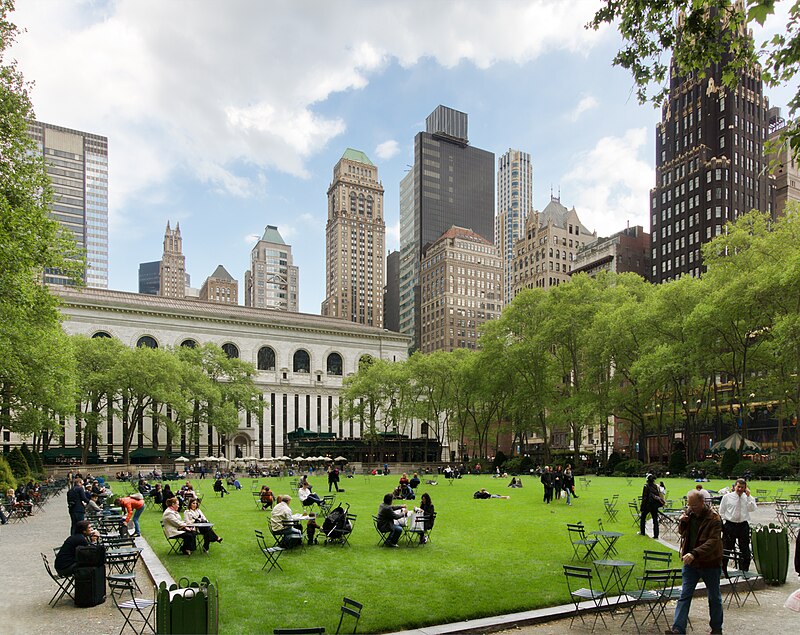 Plans for the Future
December 27, 2013
Plans for the Future
December 27, 2013
PC TECH students have many hopes and dreams for the future. Describing these ideas makes use of future-tense verbs.
Kevin from France tells us of a possible career in the entertainment world:
I would like to become a producer, so I will have to find an audio engineering school to learn more about this career. I choose this job because I love music and I really want to work in a music studio. When I was 14, I started to play guitar and piano and to practice singing. I thought that it would be better to be a producer instead of being an artist.
Takuma comes to us from Japan and gives us his reasons for learning English:
I think English will help me in every way because I want to work in New York [in the future]. That’s why I am learning English right now. If I can speak English very well, I will be able to find a lot of kinds of work.
[Another] reason is that I can have transactions with the people of different countries. Because I think English is the most popular language all over the world, I have to get more skills.
The most important is that I can get married with an American [really? –ed]. Actually, it is my most important reason. [Editor’s note: Maybe this is written “tongue-in-cheek.”] Probably I can do that because I will stay here a long time.
PC TECH: English Language School in New York City
 English for the Future
December 23, 2013
English for the Future
December 23, 2013
People who want to improve their English school come to PC TECH for almost as many reasons as there are countries in the world.
Souleymane is from Ouagadougou, Burkina Faso and writes about his hopes for the future:
[Among the world’s languages], English is the most spoken language worldwide. It is very important today and [will continue to be so].
Learning English will help me because I will be able to read books written by the great economists. Then I will improve my training and will try to continue my studies at an English-language university. Many theories of economics are written in English.
So learning English today will help me realize my dreams for the future.
Kevin has European and African roots and writes about his dreams:
Learning English will be useful for me because, when I go back to France, I will get more opportunities to have a job with a high salary. However, I wonder if I should complete my studies in the USA to be sure of doing what I want.
Furthermore, if I start a business in the same way as an American, I could earn a lot of money in France, even in Africa. In summary, it is not only learning English, there also learning how to be a “capitalist” which is , I think, the best way to succeed in my life.
PC TECH: English Language School in New York City
 What’s Ahead?
December 18, 2013
What’s Ahead?
December 18, 2013
Our PC TECH students have been steadily improving their writing skills. It seems that when you can write a language, you have a good grasp on its basics.
Souleymane from Burkina Faso takes a look at the past and projects twenty years into the future:
Our world many years ago was very different from now. People didn’t use instruments like credit cards, elevators, cable [TV], etc.
Nowadays, science and technology advance the world. How will the world be twenty years into the future?
[In my opinion], many things will change. We’ll be able, for example, to drive cars, buses, and trains under the oceans, and also fly with them like planes.
Twenty years into the future, people will speak the [fewer different] languages because many languages are going to disappear.
In the future, our world will live as one – as a village!
Yuki from Japan writes of his personal vision for the future:
…I hope I will have gotten married and I will have two dogs: a dachshund and a Labrador retriever – but I can’t walk around with dogs! [Yuki doesn’t tell us his reason.]
I think I can make enough money twenty years from now to go abroad with my mom, but I don’t know what kind of job I will [have].
I hope I will have a good [life] twenty years [from now].
PC TECH: English Language School in New York City
 Oh, the snow in New York City…
December 17, 2013
Oh, the snow in New York City…
December 17, 2013
It’s a snowy day today, but that hasn’t stopped students from coming in today, and finessing their English. Conjunct their coffee, hot chocolate, or tea, and students are adjunct, — ‘equip’, and ready to learn!
What’s your favorite thing about winter? Or the snow? How does learning English relate with this season’s weather? A weather like this can cause stumbling block, and send you right to embracing the blankets on your bed, or cushions on your couch. But, why not turn to English? (The weather doesn’t always have to be frightful.)
Think winter English words, and master pronunciations:
Winter – Win–ter, December – De-cem-ber, Hoodie – Hoo-dee
Universal language translations:
Neige (French): Snow, Schneemann (German): Snowman, Frio (Portuguese): Cold, Chocolate Caliente (Spanish): Hot Chocolate
Stay inspired this winter. May you have a productive one! Let It Snow! Let It Snow! Let It Snow!
PC TECH: English Language School in New York City
 Merry Christmas… from, PC TECH
December 13, 2013
Merry Christmas… from, PC TECH
December 13, 2013
Christmas time at PC TECH is fun. Students love it. Teachers love it. New York City loves it. So, — we honor it! We’ve decorated, and adorned our facility for the Christmas holiday. Every year, a beautiful Christmas tree is bedazzled here at PC TECH. The atmosphere is homely, and welcoming….a reason why students enjoy there time here.
Upon entering or leaving class, our holiday Christmas tree is the first thing our students will see. Decorated personally, by our faculty. Lavished by several unique ornaments…we have yet to finish ornamenting our tree. I’m thinking, Hershey’s Kisses. What do you think?

PC TECH: English Language School in New York City
 One Student’s Experience; Another Student’s Opinion
December 11, 2013
One Student’s Experience; Another Student’s Opinion
December 11, 2013
As a PC TECH Level 2 writing assignment, Kohei from Japan tells us about his experience in a Los Angeles traffic accident:
I had a car accident in LA two weeks ago.
I was driving on a highway [when] suddenly I felt an impact from behind. It was like an explosion. I looked behind my rental car; one car had crashed with another.
I called the police, but the offender had escaped because I think he had some problem with drinking with drinking or something else illegal.
Afterwards I had to go to a hospital and get a medical examination, but I didn’t have any injuries. It’s a very [bad] memory!
Simone from Brazil offers her opinions about commercialism:
It’s a fact [that] people are never satisfied with what they have; they always want something more or something different. And [whose] fault is it? Who is guilty?
The problem is our society because we are living in a world where TV, newspapers, and Internet [tell] us what we need and what we don’t need to buy.
All the companies don’t care if their products are good and if their products have a long life; the just care to [make] money…
Don’t let [the] aggressive advertising [used by] their companies manipulate you because it’s what they do. Let’s try to be satisfied with what we have. I think it’s a good way to be happy.
PC TECH: English Language School in New York City
 Unwinding at PC TECH
December 10, 2013
Unwinding at PC TECH
December 10, 2013
Looking for ways to unwind while studying at PC TECH? Come visit Bryant Park. Located just 2 blocks away from PC TECH, Bryant Park is built entirely over an underground structure which houses the New York Public Library’s archives. It’s the perfect place to relax, or brush up on your English with some friends. There are foods, plus tables and seating. There’s Holiday shopping booths to visit, there’s The Great Lawn, The fountain, and the famous Le Carrousel. And let’s not forget the famous added Citi Pond skating rink.
Interesting Fact: Beginning in 1823, Bryant Park was designated a potter’s field (a graveyard for the poor) and remained so until 1840, when thousands of bodies were moved to Wards Island.
Law & Order, the television series, is known for filming scenes in Bryant Park. The Sex and the City film staged multiple scenes in front of the NY Public Library (which is officially part of Bryant Park) and in the park’s carousel. Bryant Park is infused with lots of attraction and hot spots. And it is infused with The New York Public Library…another place to unwind.
If you remember the famous 1984 Ghostbusters film, Bill Murray, Dan Aykroyd and Harold Ramis come running out of the library building.
http://en.wikipedia.org/wiki/New_York_Public_Library
http://en.wikipedia.org/wiki/Bryant_Park
PC TECH: English Language School in New York City
 Accident Stories
December 6, 2013
Accident Stories
December 6, 2013
In one of PC TECH’s English classes, the topic of accidents came up. Students wrote about some of their experiences.
Kevin from France describes his bike accident in the third person:
I’m going to tell about an experience that changed my life because I almost died. I’ll write this story like a fable.
Once upon a time in France, [there] lived a boy named Kevin. He was very reckless when he [rode his all-terrain] bicycle in the forest. One day Kevin was in a race with his friend. The challenge was difficult because Kevin’s opponent was very good. Kevin put all of his power into winning this race. He was so focused that he didn’t notice that a fox was crossing the track; he tried to dodge it. He turned suddenly to the right, lost control of his bike, and fell into a huge hole.
An hour later, the [ambulance] came to take Kevin [to a hospital] . He had a broken leg!
Souleymane relates a sad event in his native Burkina Faso:
Many years ago in my country we had a terrible [bus] accident that [resulted in 87 deaths]. The bus was going [from one town to another]. The chief means of transportation between towns is a bus and this one was full of travelers.
After two hours, the bus [developed a mechanical problem]. The driver and the manager tried [in vain] to repair it. They decided to continue traveling in order to find a [service] station.
Before they [found] a station, the bus failed, fell apart, and burned. It was a terrible event that [occurred] in my country many years ago.
PC TECH: English Language School in New York City
 A Mouthful of Grammar
December 4, 2013
A Mouthful of Grammar
December 4, 2013
In PC TECH English classes, you will learn how to form and use adjectives and adverbs. Here are some tips:
You can take many nouns and, by adding the suffix –ful, change them into adjectives:
care > careful beauty > beautiful wonder > wonderful
delight > delightful bowl > bowlful cup > cupful
arms > armful hand > handful spoon > spoonful
use > useful house > houseful mouth > mouthful
In general, something that can be filled can often be used in this adjective form. (Notice that some of these nouns can be used as verbs.)
Examples:
At the party, we had a houseful of people. (Our house was full of people.)
I have a bowlful of cereal every morning. (I have a full bowl of cereal every morning.)
It’s not polite to talk with a mouthful (of food or drink). (It’s not polite to talk with a full mouth.)
Adding another suffix (-ly) will form the adverb from many of these adjectives. Don’t forget to double the “l”:
carefully beautifully wonderfully usefully
That can only be done with abstract nouns, not with nouns that describe an object that you can see or touch. Unless you are joking (or maybe a poet!), you would never say “It’s not polite to speak mouthfully.”
PC TECH: English Language School in New York City
 Foods for the Holiday
December 3, 2013
Foods for the Holiday
December 3, 2013
The Christmas season is also the ‘festive’ season. Festive, not only because of the sharing of gifts. But festive, for it’s sharing of food as well. Christmas dishes tend to be similar to Thanksgiving dishes. Common dishes include, Pumpkin pie, Apple pie, Apple cider, Christmas cookies, Christmas ham, Roast turkey, Stuffing, Eggnog, Hot chocolate, Gingerbread, Mashed potato, and Chocolate fudge.
Pumpkin pie is very traditional. The pumpkin, actually, is native to the continent of North America. By the seventeenth century, pumpkin pie recipes were found in English cookbooks. They weren’t found in American cookbooks until the early nineteenth century. At that time, the English pumpkin pie was prepared by stuffing the pumpkin with apples, spices, and sugar and then baking it whole.
The Christmas ham tradition is said to have begun among the Germanic people as a tribute to Freyr, a god in Germanic Paganism associated with boars, harvest and fertility. It was later popularized by the Catholic Church as a test of truthful conversion from Judaism.
Modern Christmas cookies trace history to recipes from Medieval Europe biscuits. By the 16th century Christmas biscuits had become popular across Europe. Children have left cookies and milk on the table for Santa Clause on Christmas Eve, since the 1930s. Often, the cookies are cut into the shapes of candy canes, reindeer, and holly leaves. Christmas cookies are fun!
Turkeys, traditionally, are the main course of Thanksgiving and Christmas feasts. It was eaten as such as early as the 16th century in England. Typically, turkey is served with stuffing, gravy and cranberry sauce. Turkey contains more protein per ounce than other meats.
What are your favorite foods for the Holiday?
PC TECH: English Language School in New York City
Archive
- October 2023
- August 2023
- July 2023
- June 2023
- May 2023
- April 2023
- March 2023
- February 2023
- January 2023
- November 2022
- October 2022
- August 2019
- July 2019
- June 2019
- May 2019
- April 2019
- March 2019
- February 2019
- December 2018
- October 2018
- September 2018
- August 2018
- July 2018
- June 2018
- May 2018
- April 2018
- March 2018
- February 2018
- January 2018
- December 2017
- November 2017
- October 2017
- June 2017
- April 2017
- March 2017
- February 2017
- January 2017
- December 2016
- November 2016
- October 2016
- September 2016
- August 2016
- July 2016
- June 2016
- May 2016
- April 2016
- March 2016
- February 2016
- January 2016
- December 2015
- November 2015
- September 2015
- August 2015
- July 2015
- June 2015
- May 2015
- April 2015
- February 2015
- January 2015
- November 2014
- October 2014
- September 2014
- August 2014
- July 2014
- June 2014
- May 2014
- April 2014
- March 2014
- February 2014
- January 2014
- December 2013
- November 2013
- October 2013
- September 2013
- August 2013
- July 2013
- June 2013
- May 2013
- April 2013
- March 2013
- February 2013
- January 2013
- December 2012
- November 2012
- October 2012
- September 2012
- August 2012
- July 2012








